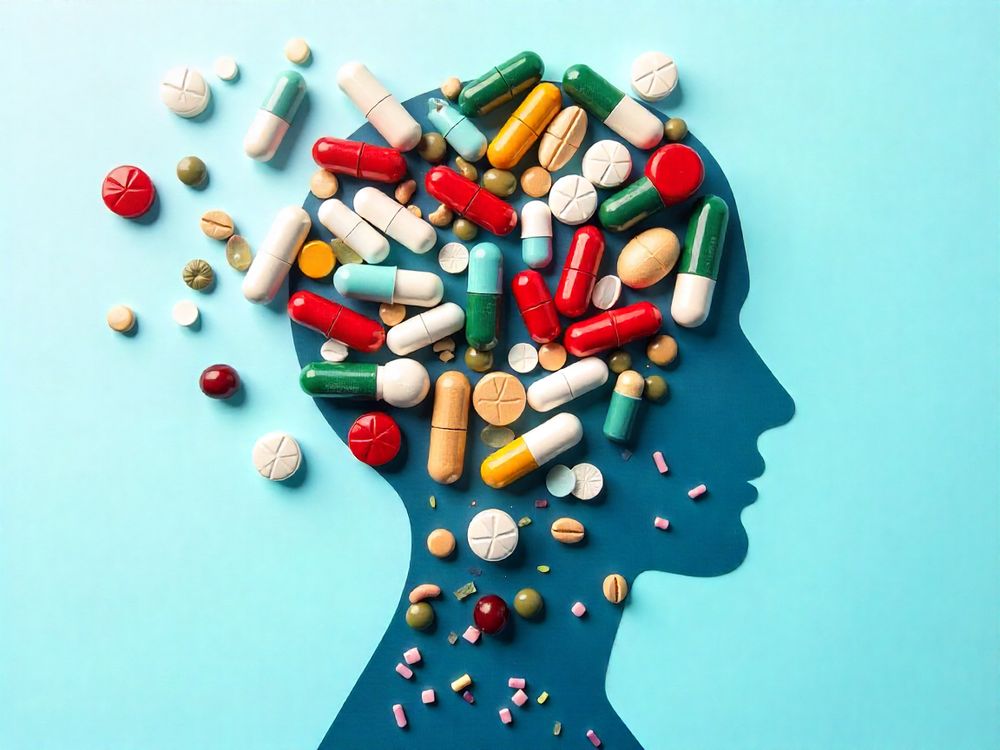Is the “Healthy Aging” Industry Making Us Sick?
Marco Aurélio Gomes Veado
3 min read
•
October 30, 2025
We live in a world that worships youth. Every week, a new “miracle” product promises sharper memory, smoother skin, or endless vitality. From “anti-aging” supplements to “neuro-boosting” formulas, the global healthy aging industry has transformed the universal process of aging into a multi-billion-dollar marketplace.
But behind the glossy ads and blue-and-white medical branding lies an uncomfortable truth: in the race to stay young, many of us may be compromising our real health and even our peace of mind (literally).

A Market Built on Fear
Aging is not a pathology. Yet marketing strategies often portray it as one. The industry thrives on the fear of decline, especially cognitive decline. Words like “memory loss,” “mental fog,” or “brain shrinkage” are used to sell the illusion of control through pills, powders, and elixirs.
According to the World Health Organization, most so-called “brain supplements” show little or no proven effect on cognitive function. Some may even interfere with prescribed medications or delay proper medical evaluation when symptoms of dementia or mild cognitive impairment (MCI) first appear.
What’s more concerning is how companies strategically frame “health” as a commodity, or something you can buy in capsules.
The underlying message is clear: if you age, you’ve failed to take the right supplement.
When Marketing Becomes Medicine
For people living with MCI, Alzheimer’s, or other neurodegenerative dementia conditions, hope is a precious and vulnerable currency.
The industry knows this!
Advertisements speak in reassuring tones of “neuroprotection,” “AI-enhanced memory restoration,” or “clinically proven longevity.”, and so on. However, upon closer examination, these phrases often rely on misinterpreted data or unpublished pilot studies.
Research from Nature Medicine warns that such claims are not just misleading; they contribute to health anxiety and misinformation, especially online, where consumers seek guidance and connection.
This dynamic creates what could be called toxic optimism: the belief that science can, and should, eliminate aging altogether.
The Quiet Cost of “Biohacking”
The rise of “biohacking” culture amplifies this problem. Influencers, startups, and even tech moguls now frame aging as a disease to be hacked, reversed, or “upgraded”.
While some of these interventions, like sleep tracking or balanced nutrition, can be beneficial, many others exist in an unregulated gray zone between aspiration and pseudoscience.
In reality, the most evidence-based pathways to brain health are surprisingly simple and not for sale.
The Lancet Commission on Dementia Prevention identifies twelve key modifiable factors that reduce dementia risk:
- physical activity
- hearing care
- blood pressure control
- mental stimulation
- social engagement
PS: None of these comes in a bottle.
The irony is striking: the cheapest interventions often bring the greatest benefit, while the most expensive ones frequently offer the least proof.
Rethinking “Healthy Aging”
If “healthy aging” is not about erasing wrinkles or buying nootropics, what is it really about?
At MCI and Beyond, we see it as the art of neuroconscientious living, cultivating awareness, curiosity, and self-compassion toward our changing brains. It’s about sustaining meaning and purpose even as neurons evolve and memories reshape themselves.
Healthy aging should empower us to accept time, not fear it.
It means understanding that the brain is a living system, one that thrives not on artificial enhancement, but on genuine human connection, creative learning, and emotional regulation.
The tragedy of the wellness market is that it often replaces this inner wisdom with dependency on pills, on marketing, on the illusion of perpetual youth. In doing so, it risks disconnecting us from the deeper sources of vitality that no product can replicate.
The Dementia Caregiver's Role of Critical Thinking
As consumers and caregivers, we must ask harder these 3 questions:
- Who benefits from this “solution”?
- Where is the peer-reviewed evidence?
- What emotions are being used to influence my choice?
Critical thinking is not cynicism; it’s a form of cognitive self-defense. In a world saturated with promises, skepticism is not negativity; it’s clarity.
Conclusion
In short, the future of healthy aging depends on a cultural shift, from selling longevity to cultivating dignity. We need systems that prioritize education, equitable access, and emotional support for aging populations.
To age is not to fail. It is to evolve. And in that evolution lies a kind of beauty no supplement can reproduce.
Join our biweekly newsletter for caregiver-friendly insights on dementia treatments and care strategies.
References
- World Health Organization. (2023). Global Status Report on the Public Health Response to Dementia. Geneva: WHO.
- Nature Medicine. (2024). Bias in Artificial Intelligence and Machine Learning for Healthcare.
- The Lancet Commission. (2020). Dementia prevention, intervention, and care: 2020 report.
- MIT Technology Review. (2023). The Invisible Bias Inside the Wellness Industry.
Keywords: healthy aging, dementia prevention, brain health, mild cognitive impairment, cognitive health, anti-aging, supplements, neuroconscientiousness, dementia care, MCI and Beyond.
Hashtags: #HealthyAging #BrainHealth #DementiaCare #MCIBeyond #WellnessIndustry #NeuroCare
Sign up for our newsletter!
Get the latest information and inspirational stories for caregivers, delivered directly to your inbox.

